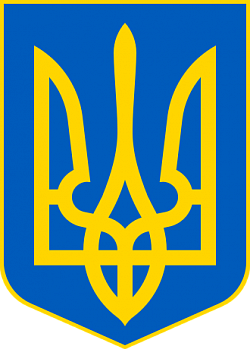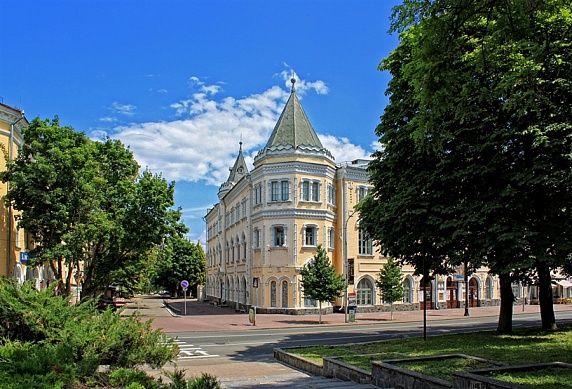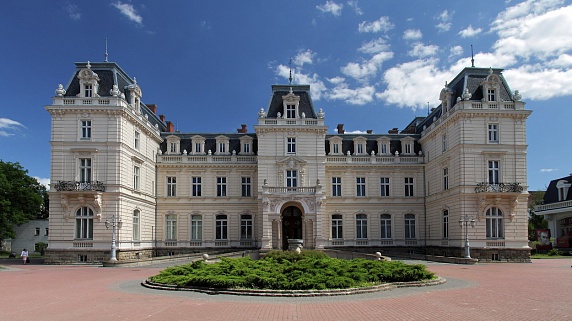 Ukraine
Ukraine
Speech by Russian Permanent Representative to the OSCE Andrey Kelin at a special meeting of the OSCE Permanent Council, Vienna, February 17, 2015
Mr Chairman,
We are grateful to the Head of the OSCE Special Monitoring Mission to Ukraine (SMM) Ertugrul Apakan, Special Representative of the OSCE Chairperson-in-Office in Ukraine Heidi Tagliavini and Director of the OSCE Office for Democratic Institutions and Human Rights (ODIHR) Michael Georg Link for their information and consideration regarding the implementation of a package of measures to carry out the Minsk accords.
The documents negotiated in Minsk are a major result of the collective efforts by all sides that are interested in a peaceful settlement of the crisis in Ukraine.
We are urging all sides of the domestic Ukrainian conflict – representatives of Kiev, Donetsk and Lugansk – to strictly abide by the adopted commitments. Russia is prepared to actively facilitate this.
The implementation of peaceful accords should be comprehensive and well-structured, and should base on the entire package of measures envisaged in Minsk. It is essential to prevent the Minsk package from being separated into narrow issues that some sides like more than others. The sides should concentrate on the issues that are of key importance for settling the intra-Ukrainian conflict: constitutional reform, national dialogue and socio-economic restoration of Donbass.
That said, the priority task is the all-out ceasefire that entered into effect on February 15. The SMM reported today that in general, it is being observed along most sections of the division line. There are no sounds of shelling for the first time in many months. Civilians have received the long-awaited silence.
According to the available information, self-defence fighters have already started pulling back heavy weapons in the area of Lugansk. Representatives of self-defence fighters in Donetsk have reaffirmed their readiness to withdraw weapons simultaneously with the Ukrainian armed forces.
We are concerned over the continued attempts of some Ukrainian units that are taking part in the so-called anti-terrorist operation, to carry out hostilities with the use of heavy equipment and artillery despite the order from Kiev. Regrettably, hostilities continue around Debaltsevo and reports are coming in about sporadic shelling by the Ukrainian forces of towns and villages, for instance Gorlovka and Zorinsk (yesterday they were attacked by Uragan and Grad multiple rocket launcher systems).
Needless to say, we are also concerned about what is happening in Debaltsevo. Nobody is happy about this, but it's unlikely we will find a way out of this situation, especially when trying to shift responsibility onto each other. Talks are necessary to resolve this issue.
All sides should completely cease firing and immediately embark on the implementation of subsequent items of the package of measures in the prescribed order.
We welcome the prompt response of the SMM, which has instantly started monitoring the ceasefire in Donbass. We appreciate the efforts of the SMM, which has to operate under very difficult conditions. Its unbiased verification activities should evenly cover the entire area of the ceasefire and the withdrawal of heavy weapons on both sides of the division line in compliance with the Minsk accords. We expect the SMM to continue providing prompt and full information about the situation in this area in its reports, which are attentively studied by all sides of the conflict.
We have noted the SMM concept paper on facilitating the implementation of the Minsk accords. Close coordination of its actions with all figures in charge in Kiev, Donetsk and Lugansk will play an important role in this respect. It is also vital for ensuring the security of observers.
We agree that in the new conditions, the SMM will have higher requirements in terms of technical and human resources. We are recruiting specialists with the necessary experience at the new stage of the mission's work. That said, the SMM is a strictly civilian mission according to its mandate, which should be taken into account in recruiting personnel.
We would like to emphasise that the SMM's efforts to facilitate the implementation of the Minsk accords in southeastern Ukraine should not weaken its attention to other Ukrainian regions that are covered by its mandate. We are referring to human rights violations, manifestations of xenophobia, aggressive nationalism, violent extremism and other forms of ethnic and religious intolerance and transgressions on freedom of speech and of the media. Ukrainian citizens continue to be harassed for political motives despite the Minsk accords.
Mr Chairman,
We hope for constructive work with the representatives of the regions in the Contact Group, including in working groups. We are supporting MsTagliavini's efforts to develop constructive cooperation in this format.
We have noted the readiness of the ODIHR to monitor elections in Donbass as soon as all aspects of their organisation and holding are agreed upon. The ODIHR bears special responsibility in this respect. Success of the entire process of political settlement will largely depend on how productive and unbiased the work of observers will be. It is necessary to consider the special circumstances, notably, the fact that many people have had to flee the conflict area and stay in other regions of Ukraine or abroad. We would like to remind our colleagues that the number of people who have left Ukraine for Russia and have remained there during the past year is approaching one million (913,000). Some 630,000 refugees applied for official status.
It is necessary to take practical steps toward improving the living standards of civilians in the affected areas. The relevant agreements on the restoration of socio-economic ties are reflected both in the four-way declaration and the package of measures. People in Donbass continue to suffer from severe shortages of food, medicines and other prime necessities.
Russia is taking measures required to improve their situation. Since August 2014 14 humanitarian convoys delivered over 20,000 tonnes of cargo, including 12,000 tonnes of food, 1,800 tonnes of electric equipment and spare parts for fixing destroyed facilities, 3,300 tonnes of building materials for restoring damaged housing and socially important centres, 350 tonnes of medicines and medical equipment, as well as baby food, presents and donations from charity organisations, water treatment stations and field kitchens.
The Emergencies Ministry is working in close contact with the International Committee of the Red Cross. OSCE observers, as well as Ukrainian border guards and customs have every opportunity to check these supplies. We hope that the formation of the international mechanism that is mentioned in item 7 of the package of measures will not be delayed under some far-fetched pretext.
In this period of responsibility we are urging all sides to refrain from reckless and confrontation-prone statements and attempts to devalue the importance or distort the content of the Minsk accords.
Statements of some Ukrainian deputies in the Verkhovna Rada and the government raise serious alarm in this context. Thus, we do not understand how to interpret the following assertions by Ukrainian Foreign Minister Pavel Klimkin: "Ukraine has not assumed any commitments to introduce specific amendments on Donbass into its constitution," or "Any steps on the so-called amnesty will be carried out in line with the law reviewed by the Verkhovna Rada." This law envisaged a fairly restricted application.
Mr Chairman,
The Minsk accords have finally created the necessary foundation for turning inclusive national dialogue in Ukraine into specific actions. Settlement of the domestic Ukrainian conflict is impossible without them. Ukrainians should choose a form for their state's constitutional arrangement that will guarantee a safe and comfortable life and full compliance with human rights to all citizens.
Thank you for your attention.








